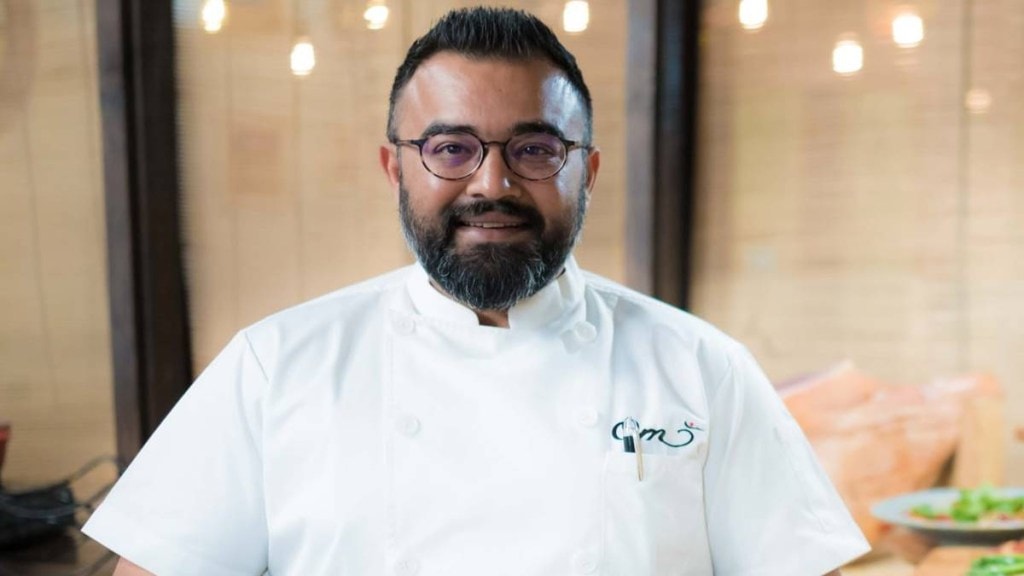Explore the culinary realm with Chef Om, co-founder of The Pasta Bowl Company (TPBC) and Bombay Meri Jaan (BMJ), as he delves into his journey from hospitality to entrepreneurship. Renowned for his unique blend of authentic flavours and innovative concepts, Chef Om’s commitment to seasonality, freshness, and culinary storytelling has elevated TPBC and BMJ to esteemed positions in India’s diverse culinary scene.
Chef Om, could you share with us your journey from hospitality to becoming a culinary entrepreneur?
My journey began with pre-openings early in my career. Since 2009, I’ve been in hospitality, launching new restaurants for clients. This led me to create my ventures: The Pasta Bowl Company, offering an experiential dining experience, and Bombay Meri Jaan (BMJ), a QSR concept filling the market gap for authentic Mumbai street food. After extensive research, we standardised our offerings to make street food accessible, catering to a broader audience while believing in the potential at the bottom of the pyramid.
In a fast-evolving food industry, how do you balance traditional culinary techniques with the demand for contemporary innovation in your menus?
Evolution is constant, and we must learn from our surroundings while embracing new ideas. This mindset guides our menus at The Pasta Bowl Company (TPBC). For over 11 years, we’ve introduced 24 seasonal menus, and I’m currently working on the 25th. While we honor classic dishes, we also explore innovation through special events like Chef’s Tables and curated sit-down dinners. Tradition holds a special place in our hearts because it carries history and romance. Food, paired with great stories and heritage, creates memorable experiences that preserve our culinary culture for future generations.
Your clientele includes global luminaries like Brad Pitt, Angelina Jolie, and the late Benazir Bhutto. How has cooking for such distinguished guests influenced your culinary style? Could you share any insights from these experiences?
Though these celebrities haven’t dined at my restaurant, I had the privilege of working with them
while employed by top hotel brands, planning meals according to their preferences. They are just like any other guest, with specific likes, dislikes, and nutritional guidelines. Their nutrition schedules can be stricter, but as long as you follow the instructions, it’s seamless. I never faced major challenges and simply followed the guidelines. Cooking for them was no different from serving any other guest, aside from a few specific requirements.
Your team includes a knowledgeable Wine Butler to guide guests in pairing wines with their meals. How do you approach wine pairings to enhance the Sicilian dining experience?
TPBC draws inspiration from Sicily, a region with a rich culinary history, including influences from its time under Muslim rule, creating some overlap with Indian food culture. Our wine pairings aim to elevate the dining experience. While general rules like pairing light wines with seafood and fuller wines with red meats hold, we customize the pairings. Chianti pairs well with pasta, and Pinot Grigio complements lighter dishes. For special occasions, guests may choose a Super Tuscan or Amarone. Although Sicilian wines are limited here, we’re constantly working to expand our offerings.
How have cloud kitchens influenced your strategy, particularly with BMJ?
Cloud kitchens have been a game-changer, offering flexibility and scalability. With BMJ, we’ve been able to expand our reach and cater to changing consumer habits without the overhead costs of a traditional restaurant. It’s about delivering quality street food efficiently while meeting modern dining preferences.
As a mentor and consultant in the industry, what advice would you give to aspiring chefs and entrepreneurs looking to make their mark in the culinary world?
The culinary industry is rewarding, and I’ve never felt stuck in this profession. My advice to aspiring chefs is to work hard and stay passionate—money will follow. This journey isn’t easy, but loving what you do makes it feel effortless. Dedicate time to research, development, and financial understanding. Don’t expect success right away; gain experience and learn from those around you. Every day offers a chance to grow.
Lastly, what drives your passion for culinary entrepreneurship?
It’s the joy of creating experiences through food, bridging cultures, and seeing guests savoring every bite. Culinary entrepreneurship allows me to express creativity, preserve traditions, and innovate—a perfect blend that keeps me inspired every day.







